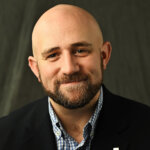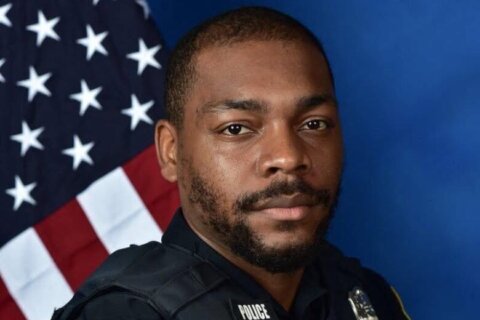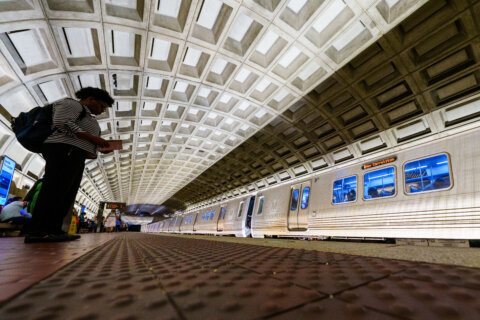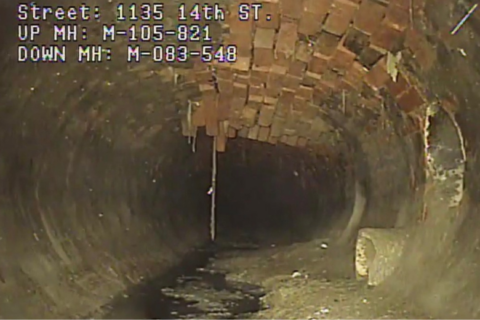While Russian aggression and possible invasion of Ukraine’s eastern border has dominated the headlines for the past few weeks, many Ukrainian Americans in D.C. say the threat spans decades and crosses generations.
The buildup of Russian troops on the Ukrainian border and the fears of an all-out war have only recently caught the attention of most Americans. Ukrainian Americans, however, have paid close attention to the developing war along the country’s eastern front for the past eight years.
In 2015, Lydia Chopivsky Benson and her two daughters, Lida and Sofia, found themselves helping the Ukrainian war effort in Kyiv.
“We volunteered with an organization who was trying to help out the soldiers fighting the war in eastern Ukraine in whatever way they can. And specifically what we did was we made camouflage netting for the soldiers to use in the Donbas region,” Benson told WTOP.
Benson is the daughter of Ukrainian immigrants. Her grandparents fled to Poland in the 1920s as communism spread. Her parents were born there, and in the wake of World War II, they all immigrated to the U.S.
She is a member of a thriving Ukrainian community in the D.C. area and has been seen protesting on Wisconsin Avenue outside the Russian Embassy as of late. They have also been spotted rallying for U.S. support of Ukraine at the White House gates.
“In the late ’80s, here in Washington, we were all very involved in the Ukrainian cause, trying to fight for independence for Ukraine,” said Benson. “Once Ukraine became independent, then they sort of took over their own fate, and there was less and less for us to do. But now that the situation is what it is in Ukraine. We do whatever we can to help.”
Another D.C.-area Ukrainian American, Hanja Cherniak, had a similar family story.
“Most everyone I know who’s of Ukrainian heritage that I grew up with, their parents fled the Russians, fled the communists,” Cherniak said.
She grew up in a Ukrainian bubble in Detroit — going to Ukrainian School and even performing traditional Ukrainian folk dancing.
Activism for her parent’s homeland was always a significant part of her life.
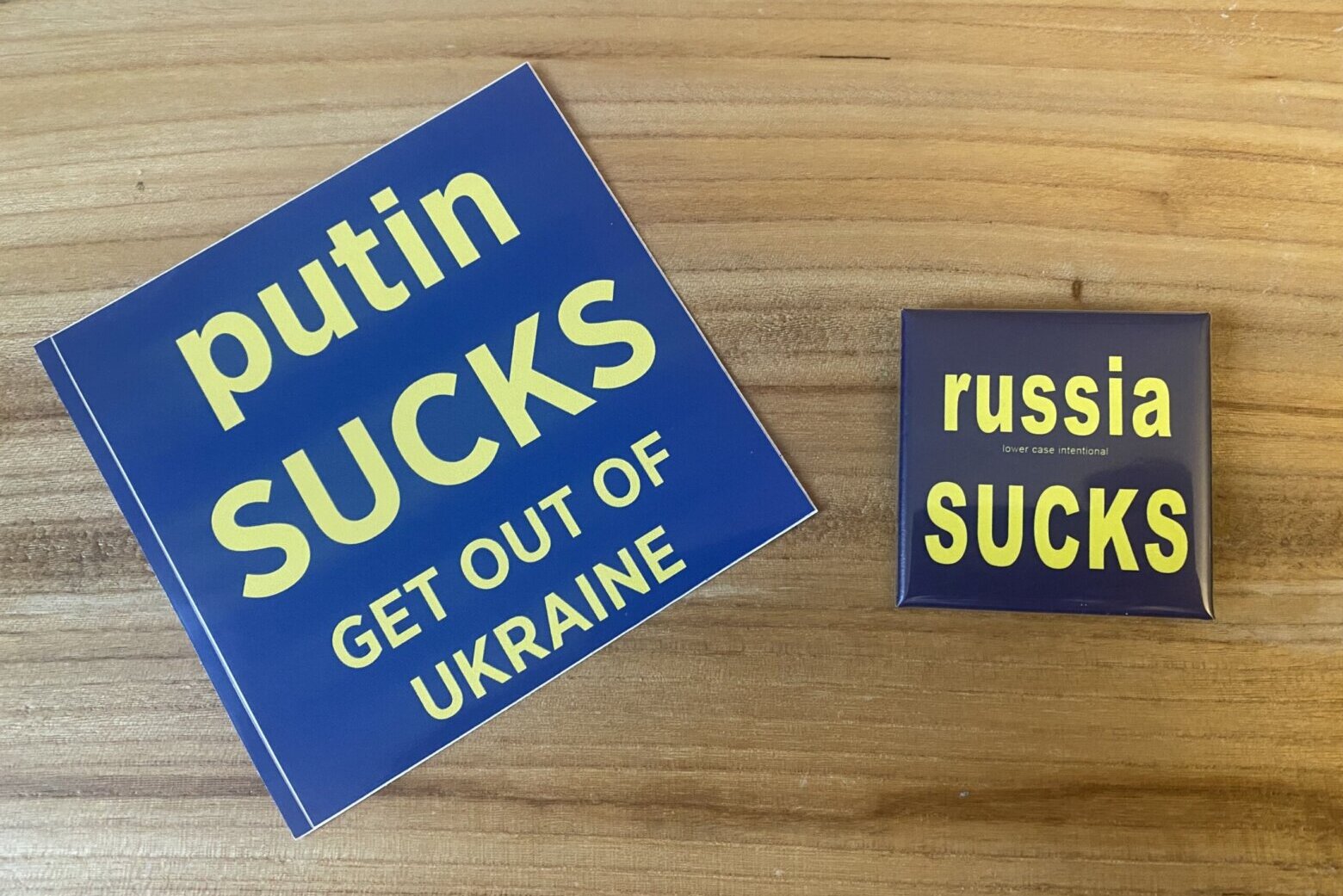
“I remember at 9 years old, my dad would take me to a scouting clubhouse, and we would paint slogans with black paint on white sheets and go to demonstrations against the Soviet Union.”
Closeness to their ancestral homeland is a common thread in the Ukrainian community here in the U.S.
“When our relatives came over here, Ukraine was a subjugated country. So Ukraine was under the rule of either Nazi Germany or Soviet Russia,” said Michael Sawkiw, the director of the Ukrainian National Information Service and the Washington Public Affairs Bureau of the Ukrainian Congress Committee of America.
“At that particular time, Ukraine’s culture, language, heritage and religion were subjugated … we kept up those traditions here. By keeping up those traditions, language, religion and culture, we added to not just the fabric of the United States, but we strengthened our community during Soviet times to differentiate that Ukraine is not Russia, that Ukraine is a separate nation; Ukraine has a separate history.”
And with that closeness to Ukraine, Russian aggression is nothing new.
“It’s history repeating itself,” Benson said. “Ukraine has finally gotten out from under the thumb of Russia, of Moscow. And they would like to squash them once again with that thumb, and the Ukrainian people don’t want it, and they won’t allow it.”
The current crisis stretches back eight years to a Ukrainian revolution, where thousands protested for months against the pro-Russian administration.
“The Revolution of Dignity in 2013, and the early months of 2014, culminated in a president (Viktor Yanukovych) that abdicated his seat,” Sawkiw said. “Immediately following that was a Russian invasion of sovereign Ukrainian territory, being the Crimean peninsula.”
And with the Russian buildup of troops and weaponry near the Donbas region in the last few months, activism has intensified here with weekly gatherings of Ukraine supporters sporting buttons that say “Putin Sucks.”
Cherniak still has friends and family in Ukraine. She told WTOP that they were both afraid and angry.
“They’re afraid, and yet they still have to go about their day-to-day lives. Can you imagine if you know somebody was about to invade D.C., but you don’t know for sure,” Cherniak said.
And they’re kind of sitting out there with all this weaponry. What are you going to do? Are you going to go to work? I mean, everyone is angry and afraid of what’s going to happen.”
But she said the people are ready to fight and that “every window will shoot,” citing a recent story from the Kyiv Post.
“Ukrainians are not going back. They are training civilians. I mean, the Army is one thing, but the regular people are not going to allow this to happen; and if they can get their hands on a gun to defend themselves, they’re going to do it.”
This sentiment is echoed by recent reporting from The Associated Press, “where polling of ordinary Ukrainians reviewed by intelligence agencies has strongly indicated there would be an active resistance in the event of an invasion.”
“This is the spirit of Ukraine, which kept Ukraine’s hopes alive for its independence when it was subjugated during Soviet times! This is the spirit of Ukraine, which has been going on for the past eight years in eastern Ukraine … 14,000 people in Ukraine have been killed, whether military personnel or civilians themselves” Sawkiw said.
Sawkiw, Benson and Cherniak all hope to see Ukraine join NATO in the future, an issue that is at the heart of the conflict.
“Yes, they very much want to be a part of NATO and a part of the European community. They consider themselves European and want to be recognized as part of that community,” Benson said.
Sawkiw cited polling that found that most Ukrainians wanted to join NATO.
“Russia has to leave Crimea and Russia has to leave eastern Ukraine, and I think that you can put an exclamation mark after that statement put a period after that statement. That’s the only outcome,” Sawkiw said. “Let Ukraine live out its well-fought for and well-deserved independence.”

